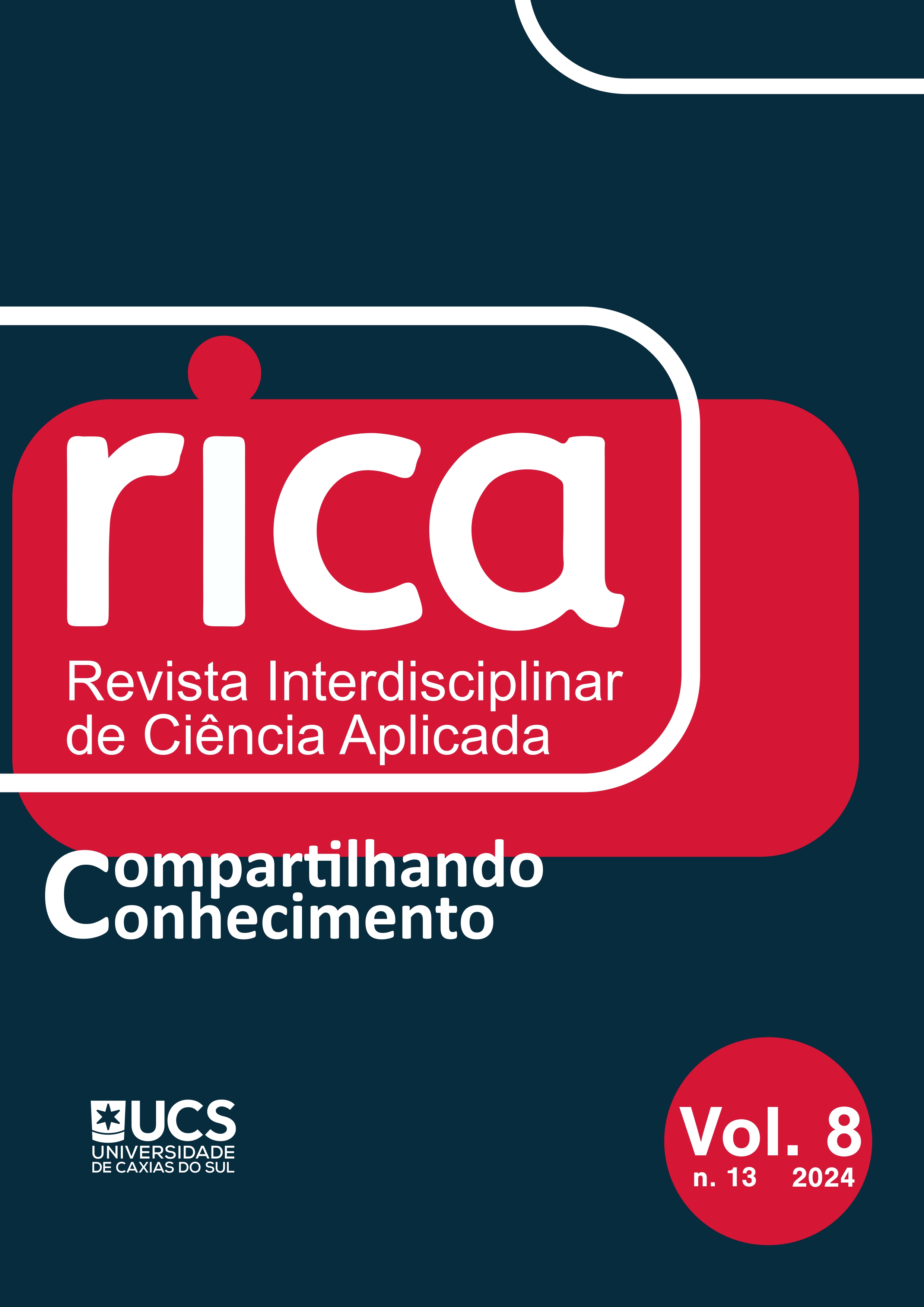Comparative analysis of current strategies for financial and food support of military units of the Armed Forces of Ukraine and NATO member states
DOI:
https://doi.org/10.18226/25253824.v8.n13.09Keywords:
International standards, Material provision, Regulatory and legal acts, Functional components, Principles of formationAbstract
The urgency of conducting the research is due to the fact that, in the wake of the full-scale aggression of the Russian Federation on the territory of Ukraine, one of the urgent problems is the issue of the material support of the army. Based on this, the purpose of the work is to conduct a comparative analysis of the modern policies of Ukraine and North Atlantic Treaty Organization (NATO) countries in providing the armed forces in the material and product aspects. For this, such methods as logical analysis, formal-legal, dogmatic, legal hermeneutics, deductions, and others were used. In the course of the research, it was highlighted that the introduction of NATO standards in the security and defence sector of Ukraine is a difficult task, as post-Soviet principles are currently operating in it. For a successful transition to NATO standards, it is necessary to comprehensively revise and update the legal framework, as well as develop and implement legal acts that will regulate the system of logistical support of the Armed Forces of Ukraine. It was determined that the foreign experience of providing social guarantees for military personnel shows that such guarantees are an important element of state policy in the field of defence. In NATO countries, social guarantees for servicemen and their family members provide a wide range of benefits and advantages that ensure a proper life and personal development. The practical value of the obtained results lies in the fact that, they will contribute to increasing the efficiency of the use of state resources, improving the system of training military units, and increasing Ukraine’s authority in the international arena.
References
Horodianska, L.V. (2022). Peculiarities of the systems of financial support for military personnel of Ukraine and NATO member states. In: Collection of Abstracts of the XVIII International Scientific and Practical Conference “Military Education and Science: Present and Future” (pp. 268-270). Kyiv: Military Institute of Taras Shevchenko National University of Kyiv.
Tsyhanok, V.M. (2023). Financial support of military personnel is one of the most important elements of their financial situation and motivation in the service. Uzhhorod National University Herald. Series: Law, 1(78), 333-337.
Bykov, O.L. (2023). State policy in the sphere of social security of military personnel. Sumy: Sumy National Agrarian University.
Lototska-Dudyk, U.B., Krupka, N.O. & Chorna, V.V. (2023). The current state and organization of food for servicemen of the Armed Forces of Ukraine in the conditions of Russian aggression against Ukraine. Scientific Bulletin of the Uzhhorod University. Series “Medicine”, 1(67), 89-94.
Bosovska, M.V., Poltavska, O.V. & Domishche-Medyanyk, A.M. (2023). Peculiarities of food for military servants in the conditions of Russian aggression. In: Proceedings of the XVI International Interdisciplinary Scientific and Practical Conference “Modern Aspects of Human Health Preservation” (pp. 70-76). Uzhhorod: Uzhhorod National University.
Chorna, V.V., Lototska-Dudyk, U.B., Podolian, V.M., Ivashkevich, Y.M. & Tomashevskyi, A.V. (2023). Requirements for the newest individual rations for servicemen of the Armed Forces of Ukraine and NATO countries. Ukrainian Journal of Military Medicine, 1(4), 83-93.
Decision of the National Security and Defense Council of Ukraine No. 473/2021 “On the Strategic Defence Bulletin of Ukraine”. (2021). Retrieved from https://zakon.rada.gov.ua/laws/show/n0063525-21#Text
Law of Ukraine No. 2469-VIII “On National Security”. (2018). Retrieved from https://zakon.rada.gov.ua/laws/show/2469-19#Text
NATO. (2016). Comprehensive assistance package for Ukraine. Retrieved from https://www.nato.int/nato_static_fl2014/assets/pdf/pdf_2016_09/20160920_160920-compreh-ass-package-ukraine-en.pdf
NATO. (2014). STANAG 6001: Language proficiency levels. Retrieved from https://www.natobilc.org/files/file/6001EFed05.pdf
Zarazhevska, S. (2022). Expenditures of the 2022 state budget increased by almost 400 billion UAH. The money will go to the army. Will it affect the exchange rate and inflation? Retrieved from https://forbes.ua/money/vidatki-derzhbyudzhetu-2022-zrosli-mayzhe-na-400-mlrd-grn-koshti-pidut-na-armiyu-chi-vpline-tse-na-kurs-ta-inflyatsiyu-20102022-9158
Belcher, O., Bigger, P., Neimark, B. & Kennelly, C. (2020). Hidden carbon costs of the “everywhere war”: Logistics, geopolitical ecology, and the carbon boot‐print of the US military. Transactions of the Institute of British Geographers, 45(1), 65-80.
Gechert, S., Paetz, C. & Villanueva, P. (2021). The macroeconomic effects of social security contributions and benefits. Journal of Monetary Economics, 117, 571-584.
Dieng, M. (2019). The Multi-National Joint Task Force and the G5 Sahel Joint Force: The limits of military capacity-building efforts. Contemporary Security Policy, 40(4), 481-501.
Mills, C. (20230. Military assistance to Ukraine since the Russian invasion. London: House of Commons Library.
Semenenko, O., Marko, I., Chernyshova, I., Koverga, V. & Pekuliak, R. (2021). Methodological aspects of the military-economic significance of agriculture and modern problems of military food resources in Ukraine. Scientific Horizons, 24(8), 81-97.
Shea, E. & Jaroszewicz, M. (2021). Opening in times of crisis? Examining NATO and the EU’s support to security sector reform in post-Maidan Ukraine. East European Politics, 37(1), 159-181.
Trebesch, C., Antezza, A., Bushnell, K., Frank, A., Frank, P., Franz, L., Kharitonov, I., Kumar, B., Rebinskaya, E. & Schramm, S. (2023). The Ukraine support tracker: Which countries help Ukraine and how? Retrieved from https://www.econstor.eu/bitstream/10419/270853/1/KWP2218v6rev.pdf
Zaharia, P. (2019). Analysis of existing constraints in the armed forces infrastructure. Bulletin of “Carol I” National Defence University, 2, 40-47.
Jacuch, A. (2020). Countering hybrid threats: Resilience in the EU and NATO’s strategies. Copernicus Journal of Political Studies, 1, 5-26.
Berejikian, J. & Justwan, F. (2022). Defense treaties increase domestic support for military action and casualty tolerance: Evidence from survey experiments in the United States. Contemporary Security Policy, 43(2), 308-349.
Samaras, C., Nuttall, W.J. & Bazilian, M. (2019). Energy and the military: Convergence of security, economic, and environmental decision-making. Energy Strategy Reviews, 26, 100409.
Hart, C. & Fuoli, M. (2020). Objectification strategies outperform subjectification strategies in military interventionist discourses. Journal of Pragmatics, 162, 17-28.
Trad, A. (2022). Transformation projects and virtual military strategy. International Journal of Higher Education Management, 8(2), 14-35.
Downloads
Published
How to Cite
Issue
Section
License
Copyright (c) 2024 Semenenko et al.

This work is licensed under a Creative Commons Attribution 4.0 International License.
Authors keep the copyright and cede to the journal the right of publishing first. Published works are licensed under a Creative Commons Attribution 4.0 International (CC BY 4.0) license, allowing the sharing of the work with recognition of the authorship and initial publication in this journal.






